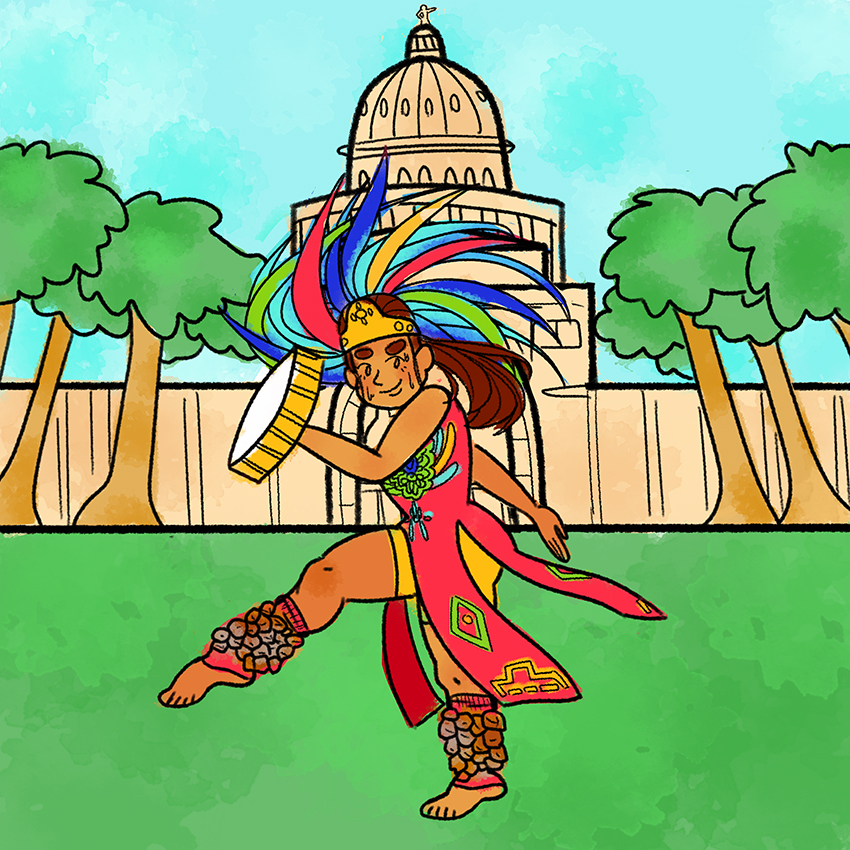This Thursday, the Austin City Council voted to replace Columbus Day with Indigenous Peoples’ Day.
For members of the International Indigenous Youth Council of Texas, or IIYC, it’s a decision that has been long overdue.
“I’m happy to see the city of Austin is becoming more aware of where the land resides and (of) the people that were here before and are still here now,” said engineering and mathematics senior Jose Gomez.
The IIYC on Sunday, along with chapters nationwide, will host an Indigenous People’s Community Day to celebrate and reconnect the community with its culture and heritage at the Resistencia Bookstore in East Austin. The celebration is free to the public and encourages all to come learn about a part of the local culture and history that is often forgotten in alignment with the historically celebrated Columbus Day.
The International Indigenous Youth Council Texas chapter is one of many chapters around the United States and was started almost one year ago by UT students who met while protesting the Dakota Access Pipeline at Standing Rock.
“(We want) to bring more awareness to people indigenous to this land and just to celebrate and restore the culture,” Gomez said.
Gomez, an IIYC member, said the organization also wants to use the event as an opportunity to educate the community about the impacts of colonialism on indigenous peoples and to reconnect them to their culture.
“Through colonization, that (culture) was forced away from our people,” Gomez said. “A lot of people who you know, identify as ‘Hispanic’ or ‘Latino,’ don’t really realize that those are terms that were forced upon us by colonizers, but really all those people have native blood running through their veins.”
Historian and renowned poet Rafael Jesus Gonzalez, whose works are soon to be archived in UT’s Latin American Studies Library, will speak at the event. Gonzalez said the celebration is important, as it comes at a time when minorities are experiencing great oppression.
“Most of the people in the United States are suffering from lack of healthcare, (lack) of shelter, lack of education, and the wealth of the nation is concentrated in the hands of very, very few,” Gonzalez said. “This is the outcome of a long, long history of the imposition of the economics of empire.”
Gonzalez said he wants the community to be more involved in local government, and to be more informed citizens so the everyday person can know how they are being governed.
“Everybody needs to be more aware and take action,” Gonzalez said. “Right now our people (immigrants) are under severe attack. We have to put a stop to that by all the methods of civic involvement that we’ve been taught since we were in the first grade.”
At the event, activist Gerardo Omar Marin will be leading interactive movement workshops that focus on community building and stress relief practices to strengthen and empower those in attendance. Marin emphasizes that although he wants to see change, he wants to make sure the root of his culture’s values are not lost.
“Our work is about that state of resistance, bringing art and culture to our actions, to the streets, ” Marin said. “Remembering that what’s important is community and sharing the beauty of our culture; that is what we are about.”















